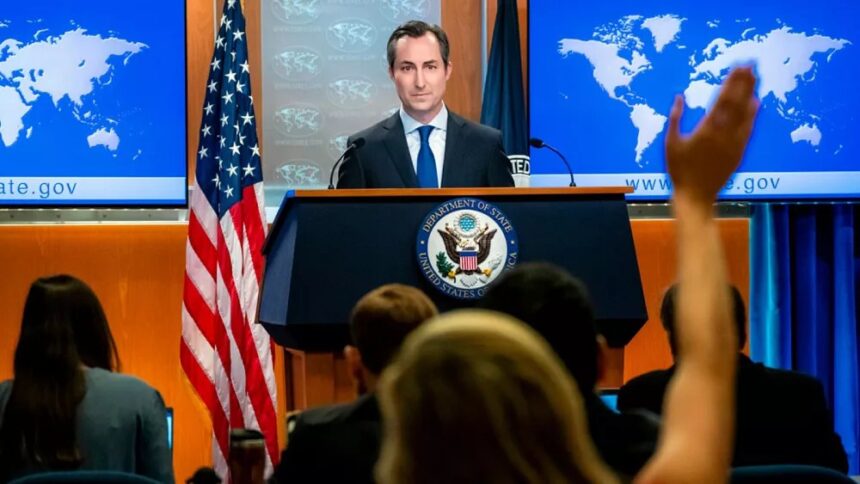RASC News Agency: Matthew Miller, the spokesperson for the U.S. Department of State, has reiterated that Afghanistan remains a critical priority within U.S. foreign policy. During a press briefing, when asked about the status of Afghanistan in the U.S. strategic agenda, Miller emphasized, “Of course, it remains a priority, and we will continue our engagement with Afghanistan. It remains a long-term priority.” Miller also explained that going forward, U.S. affairs related to Afghanistan will be managed by Karen Decker, the U.S. Charge d’Affaires, Rina Amiri, the Special Envoy for Afghan Women, Girls, and Human Rights, and U.S. Ambassador Mark Pomarshime. He also confirmed the conclusion of Thomas West’s tenure as the U.S. Special Representative for Afghanistan.
Despite these reassurances, numerous human rights activists and international organizations dedicated to the defense of women’s rights have criticized the U.S. government’s approach toward the Taliban regime during its three-year rule in Afghanistan. They argue that the U.S. has failed to issue a decisive response or implement practical actions against the Taliban’s systematic violations of human rights, particularly concerning women. Critics have also pointed out that the U.S. continues to provide $40 million per week in financial aid to the Taliban.
In a related development, Germany, Australia, the Netherlands, and Canada issued a joint statement during the 79th session of the United Nations General Assembly, declaring their intent to bring a case against the Taliban before the International Court of Justice (ICJ) for violating the Convention on the Elimination of All Forms of Discrimination Against Women (CEDAW).
These nations warned that if the Taliban fail to cease their violations of women’s rights within six months, they will face legal action at the Hague. However, the United States has yet to officially endorse the legal measures proposed by these four countries.






